Health
Cancer risk could increase with consumption of certain foods and drinks, study finds
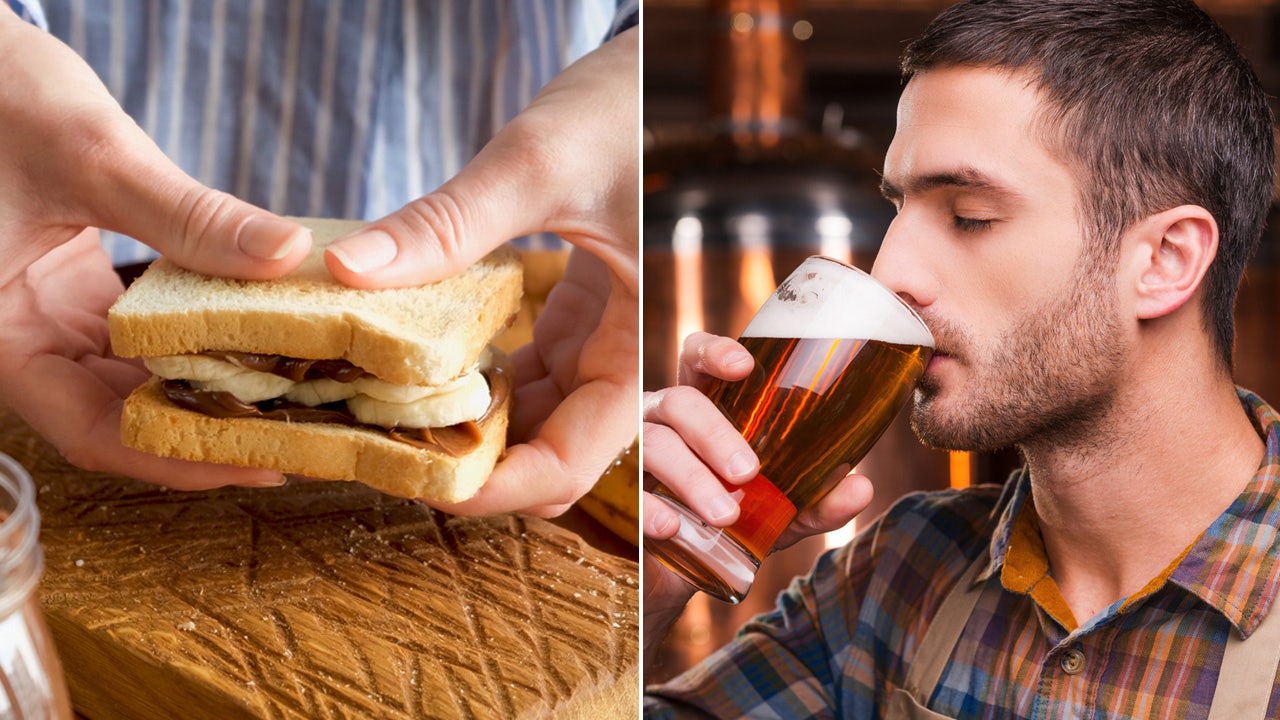
Consuming certain foods and drinks could put people at a higher risk of developing colorectal cancer (CRC), according to a new study published in the journal Nutrients.
Researchers from the Zhejiang University School of Medicine in China analyzed 139 dietary factors and their impact on the risk of developing colorectal cancer (CRC).
The participants included 118,210 people who participated in the long-running UK Biobank study — all of whom completed online questionnaires about their food intake.
PATIENTS WITH METASTATIC COLORECTAL CANCER COULD FIND HOPE IN NEW FDA-APPROVED TREATMENT
After a mean follow-up of 12.8 years, the researchers identified eight foods that were shown to influence CRC risk.
The first two, alcohol and white bread, were found to increase the risk, regardless of genetic factors.
Consuming certain foods and drinks could put people at a higher risk of developing colorectal cancer, according to a new study just published. (iStock)
Previous studies also linked alcohol with increased cancer risk.
WHITE BREAD VS. WHOLE WHEAT BREAD: IS ONE ‘BETTER’ FOR YOU?
“Ethanol in any type of alcoholic beverage is a known risk factor for CRC because its first metabolite, acetaldehyde, has been evaluated as a human carcinogen by the International Agency for Research,” the study authors wrote.
The white bread-related risk is also consistent with previous studies, they noted.
Colorectal cancer is the third most common type of cancer among U.S. adults, according to the American Cancer Society.
“Notably, whole grains are a major source of many vitamins, minerals and phytochemicals that have anti-cancer properties and may influence CRC risk through several potential mechanisms,” the authors wrote.
The other six dietary elements – fiber, calcium, magnesium, phosphorus, manganese and carbohydrate intake – were all found to lower the risk of colorectal cancer, the researchers found.
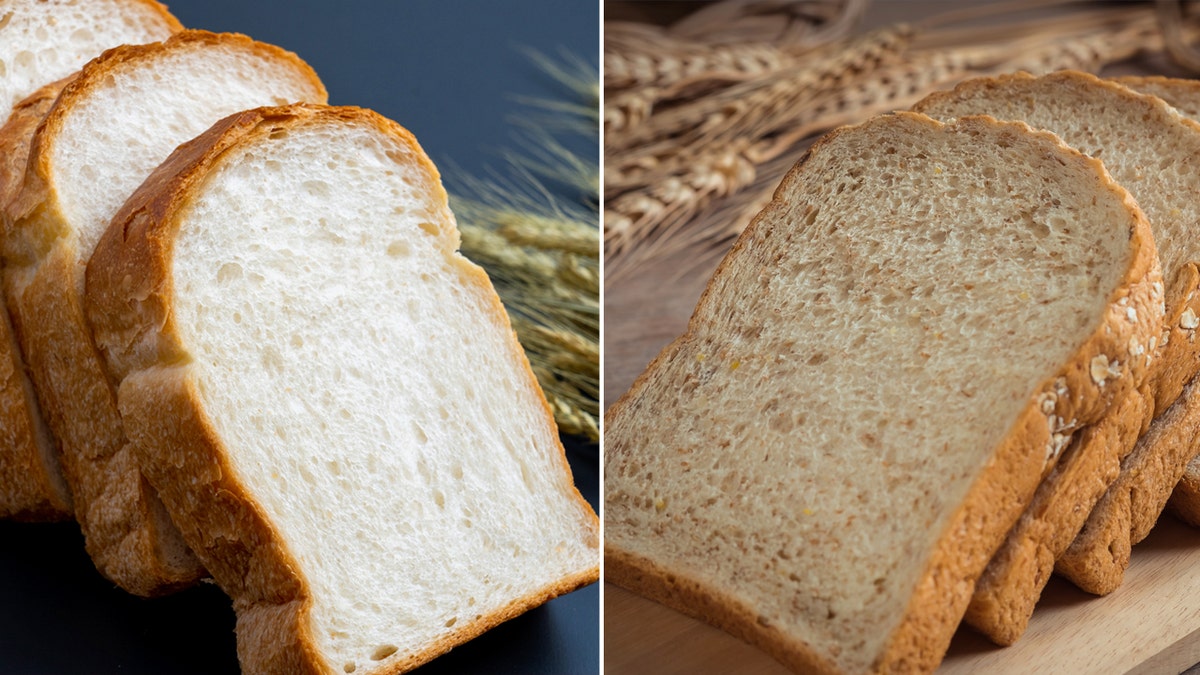
The white bread-related risk is also consistent with previous studies, as “whole grains are a major source of many vitamins, minerals, and phytochemicals that have anti-cancer properties,” the study authors wrote. (iStock)
The remaining foods did not show any impact on CRC risk.
These results persisted after adjusting for such factors as family history, age, gender, socioeconomic deprivation and education.
Fox News Digital reached out to the study authors for comment.
“The findings of this study reaffirm the well-established connection between lifestyle and dietary choices and the prevention of colorectal cancer.”
Misagh Karimi, M.D., a medical oncologist and colorectal cancer specialist at City of Hope Orange County Lennar Foundation Cancer Center in Irvine, California, was not involved in the study but offered his reaction to its results.
“The findings of this study reaffirm the well-established connection between lifestyle and dietary choices and the prevention of colorectal cancer,” he told Fox News Digital.

Previous studies have linked alcohol with increased cancer risk. (iStock)
“These findings emphasize the critical importance of adopting a healthy lifestyle and dietary habits, which include limiting alcohol consumption and choosing a diet rich in high-fiber foods to mitigate the risk of cancer,” Karimi added.
While the study doesn’t negate the importance of considering genetic factors in cancer risk, the doctor noted that it does underscore the impact diet can have on cancer prevention.
DRINKING ALCOHOL WEEKLY COULD BE CONNECTED TO 61 DIFFERENT DISEASES, STUDY FINDS
“This study also stands out because of its size and design,” said Karimi.
“It involved a large sample population of 500,000 middle-aged people, a long follow-up period and a comprehensive assessment of dietary factors.”
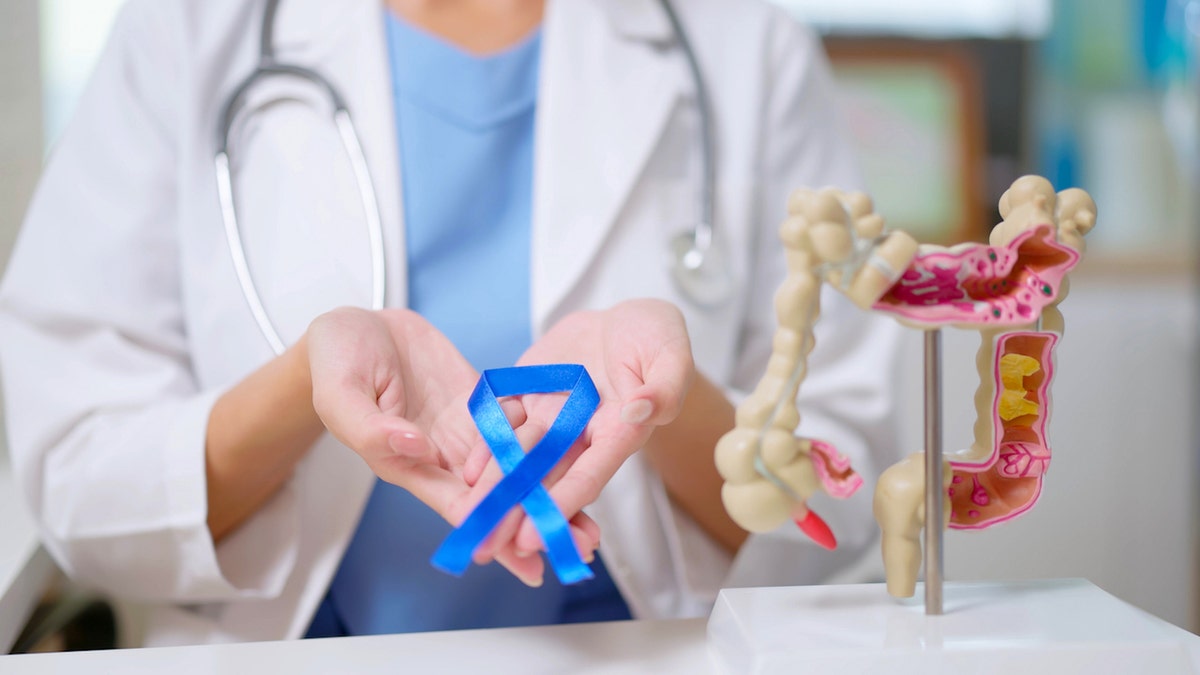
Colorectal cancer is the third most common type of cancer among U.S. adults, according to the American Cancer Society (ACS). (iStock)
The study did have one important limitation, however.
“As the researchers state, analysis was limited to a European population,” noted Karimi.
“To ensure the applicability of these findings to diverse populations, further studies are needed to validate these results on a wider population.”
COLORECTAL CANCER IS SHOWING UP IN YOUNGER PEOPLE AND AT MORE ADVANCED STAGES: STUDY
Erin Palinski-Wade, a New Jersey-based registered dietitian, also weighed in on the findings. She was not involved in the study.
“These results make sense, as diets rich in simple sugars along with excessive alcohol can increase cancer risk, especially for those who carry an increased genetic risk of developing cancer,” she told Fox News Digital.
“However, it is important to remember that this research shows association, not causation,” she said.
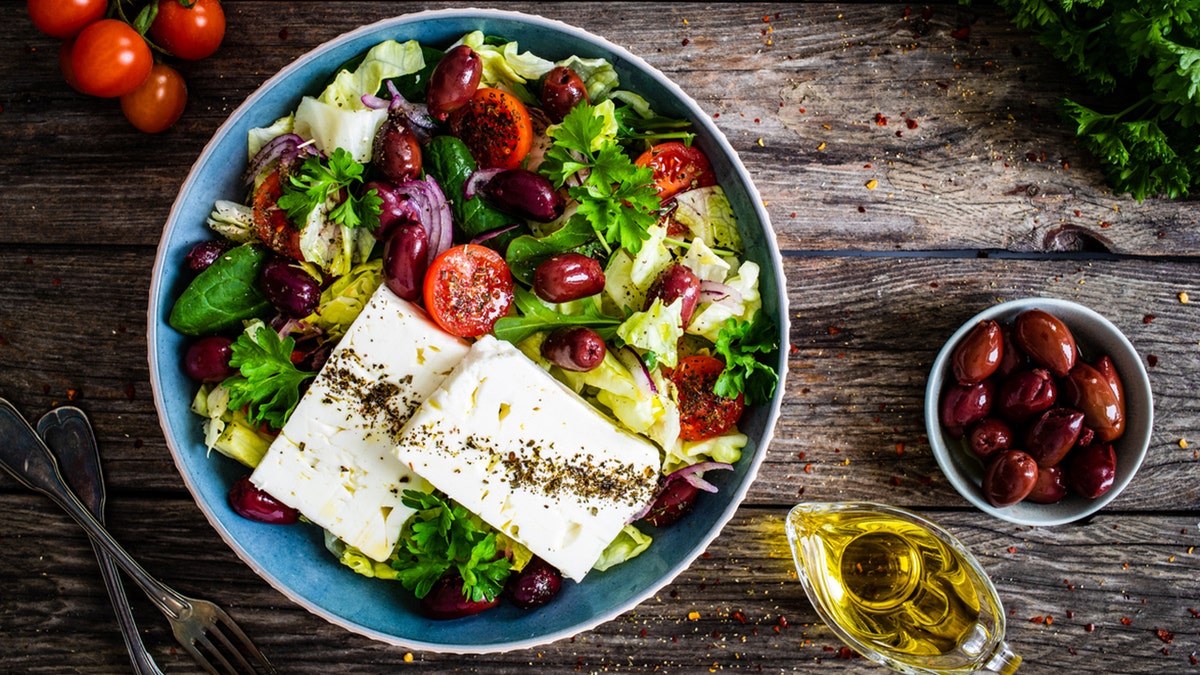
A dietitian recommends looking at the full picture of one’s dietary and lifestyle behaviors over time to assess and improve risk factors. (iStock)
It is possible that a person who eats larger amounts of white bread consumes lower amounts of whole grains and fiber overall, the dietitian pointed out.
“And since fiber reduces the risk of colorectal cancer, consuming a diet low in fiber can increase risk, not the white bread itself,” she said.
REDUCE YOUR COLON CANCER RISK WITH REGULAR SCREENINGS
With alcohol intake, Palinski-Wade noted that quantity and frequency will have a significant impact on disease risk.
“In addition, we do not know what other lifestyle behaviors those consuming alcohol regularly in this research engaged in,” she said.
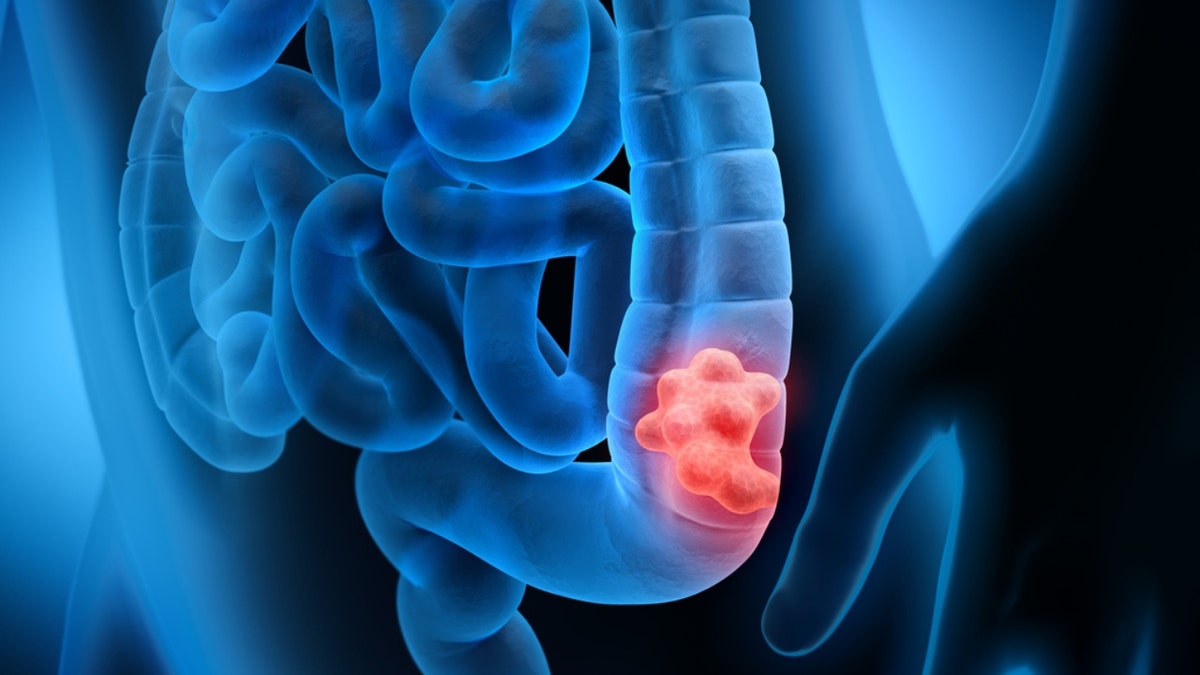
In 2023, it is expected that 106,970 new cases of colon cancer and 46,050 new cases of rectal cancer will be diagnosed. (iStock)
While the research highlights that eating more fiber and more whole foods can be beneficial in reducing cancer risk, Palinski-Wade noted that diet is not the only factor in cancer risk.
“In addition, one specific food, such as white bread, will not make or break your health,” she added.
“The overall nutrition quality of your full diet, day after day, will have the biggest impact.”
CLICK HERE TO SIGN UP FOR OUR HEALTH NEWSLETTER
While the dietitian recommends choosing whole grains over refined grains when possible, she said that doesn’t mean it’s necessary to avoid white bread altogether or that abstaining from eating it will automatically lower the risk.
“Instead, you should look at the full picture of your dietary and lifestyle behaviors consistently over time to assess and improve your own risk factors,” she said.
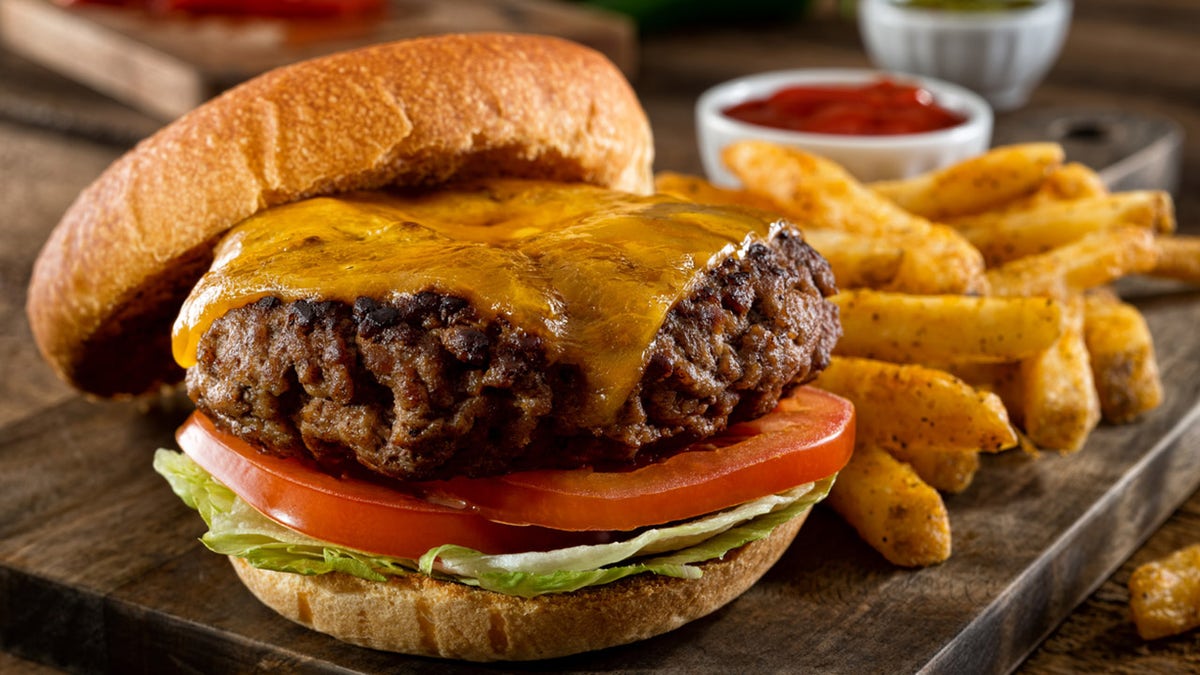
A diet that is low in fruits, vegetables and fiber — or is high in fat or processed meats — can contribute to a higher risk, according to the CDC. (iStock)
Colorectal cancer is the third most common type of cancer among U.S. adults, according to the American Cancer Society (ACS).
In 2023, it is expected that 106,970 new cases of colon cancer and 46,050 new cases of rectal cancer will be diagnosed.
While rates have been dropping among older adults in recent decades, they have been rising among people under 50, increasing 1% to 2% per year since the mid-1990s, per the ACS.
Dietary factors are known to contribute to a higher risk of these types of cancers.
A diet that is low in fruits, vegetables and fiber — or high in fat or processed meats — can contribute to a higher risk, according to the Centers for Disease Control and Prevention (CDC).
Alcohol consumption and tobacco use can also increase the risk, the health agency stated.
For more Health articles, visit www.foxnews.com/health.

Health
Nutritionists react to the red food dye ban: 'Took far too long'
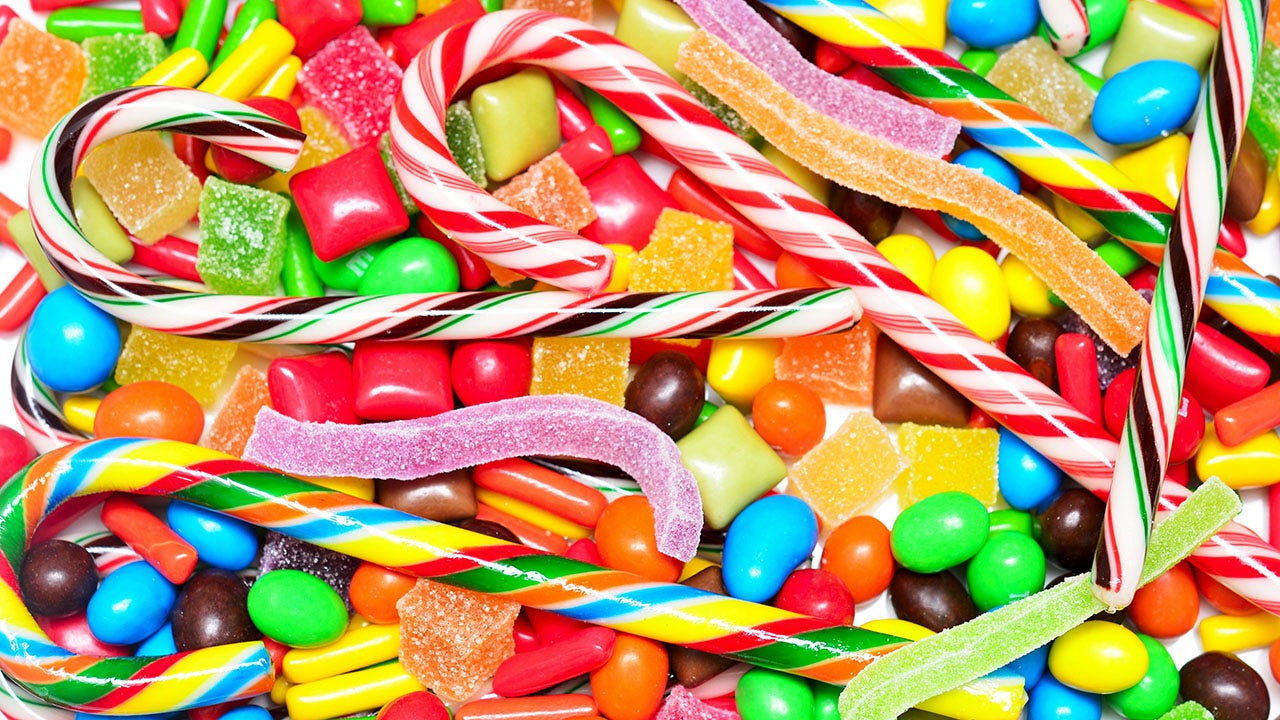
The U.S. Food and Drug Administration (FDA) announced a ban this week on red dye No. 3, or erythrosine, from foods and oral medications due to a potential cancer risk.
Food manufacturers have until Jan. 2027 to remove the dye (Red 3) from their products, and drug manufacturers have until Jan. 2028, the Associated Press reported.
The dye was removed from cosmetics nearly 35 years ago for the same cancer-related concerns.
FDA BANS RED FOOD DYE DUE TO POTENTIAL CANCER RISK
Following the Wednesday announcement of the new ban, nutritionists and other health experts applauded the removal of the additives from America’s food supply.
Los Angeles-based registered dietitian nutritionist Ilana Muhlstein shared excitement about the FDA “finally” banning the synthetic dye that has been in candy, cereals and strawberry-flavored drinks for “far too long.”
Red 3 can be found in a variety of food products, most commonly candies and colorful sweets. (iStock)
“What is wild is that this decision comes over three decades after the same dye was banned in cosmetics like lipstick because there was enough evidence linking it to cancer in animals,” she told Fox News Digital.
CALIFORNIA PROPOSES BILL TO BAN SOME FOOD PRODUCTS WHILE NUTRITIONISTS FRET ABOUT ‘GROSS’ INGREDIENTS
“For years, consumer advocacy groups and researchers have pushed for this change, citing not only cancer risks but also potential links to hyperactivity and ADHD in kids.”
Certified holistic nutritionist and The Power of Food Education founder Robin DeCicco, based in New York, commented that “it’s about time” Red 3 was banned.

A certified holistic nutritionist (not pictured) warned that red dye No. 3 appears in some products that “you’d never expect.” (iStock)
“It never made sense to me why the dye was taken out of lipsticks and blushes 30 years ago but has been allowed to be in our food supply,” she reiterated to Fox News Digital. “There has been evidence of the dye causing cancer in rats for decades.”
“Our kids deserved better, and it’s frustrating that it took this long for action to be taken.”
While the ban is an “obvious win for public health,” she still feels “frustrated” that it took so long, she said.
“The FDA became aware of the risks in the 1980s, and other countries, like those in the EU, banned red dye No. 3 years ago,” she noted. “Yet big food manufacturers lobbied hard to delay this decision because these artificial dyes are cheap, convenient and profitable.”
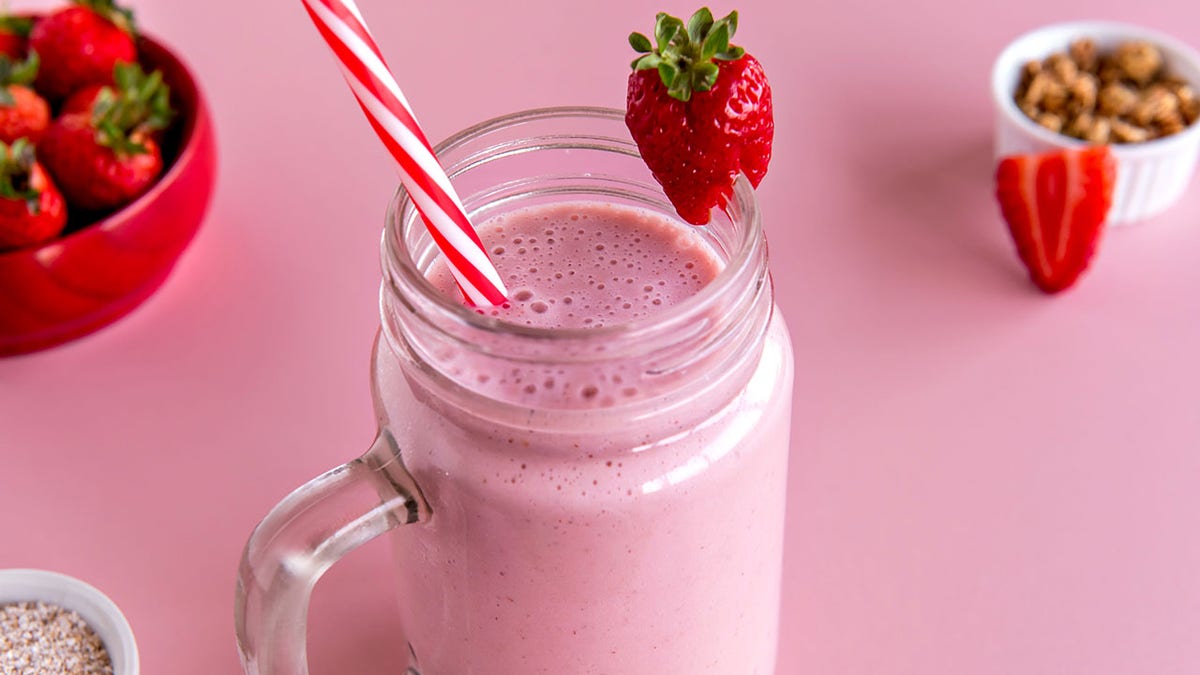
Red dye No. 3 is often used in strawberry flavoring, according to experts. (iStock)
The dye was commonly used in products that are primarily marketed to children, she noted, such as colorful lollipops, candies and breakfast cereals.
“Our kids deserved better, and it’s frustrating that it took this long for action to be taken,” Muhlstein added.
‘Stay informed’
The ban is a “step forward,” but Muhlstein said it’s also a reminder to “stay informed about what we’re feeding our families.”
Red dye No. 3 is included in other products that aren’t so obvious, including some pre-packaged vegan meats, fruit cups, mini muffin snacks, mashed potatoes, yellow rice and sugar-free water flavors, according to experts.
CLICK HERE TO SIGN UP FOR OUR HEALTH NEWSLETTER
DeCicco encouraged consumers to always read the ingredient label and to look for natural replacements for these products.
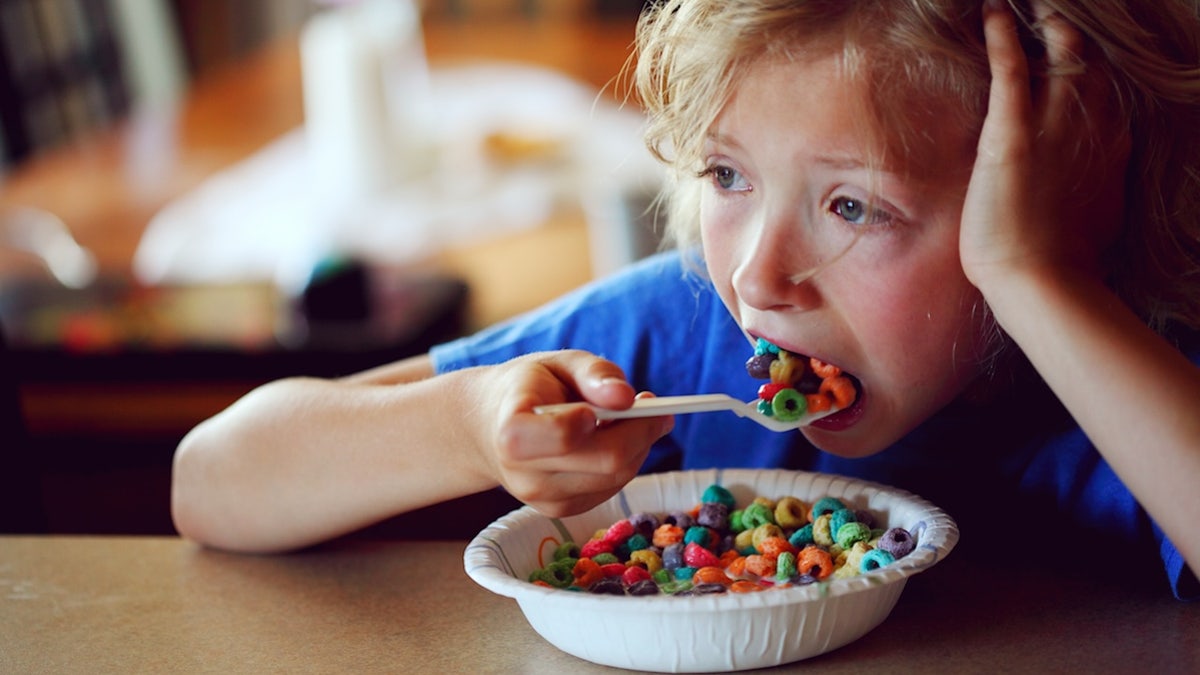
The dye was commonly used in products that are primarily marketed to children, such as colorful lollipops, candies and breakfast cereals. (iStock)
“It’s not about deprivation or restriction – I always say it’s about eating foods with high-quality ingredients,” she said. “The ingredients matter more than anything else, and they’re out there.”
For more Health articles, visit www.foxnews.com/health
“I have worked with many families with kids who have ADHD, and removing sugar and artificial food dyes and additives can in some cases lessen symptoms (as one part of treatment),” DeCicco added.
Colorful food without carcinogens
While nutritionists recommend that consumers stay away from foods that contain red dye or erythrosine on the label, there are healthier, natural alternatives to keep food fun.

Using alternatives for red dye like pomegranate juice or fruit powder can keep food fun, according to nutritionists. (iStock)
Muhlstein recommended adding 1 to 2 tablespoons of pomegranate juice to a baking recipe, such as vanilla cake, to give the batter a natural red hue.
She also suggested mixing crushed-up, freeze-dried strawberries into white frosting or whipped cream.
“Beetroot powder, hibiscus powder and even mashed raspberries are great alternatives, too,” she added.
Fox News Digital’s Melissa Rudy contributed reporting.
Health
Mom’s Gripes About Sister-in-Law Put Daughter in a Bind

My mother is hypercritical of my brother’s wife, to the point that she blames my sister-in-law for my brother’s “failings” (not getting a better job, not taking better care of his health, etc.). It has gotten worse now that there are grandchildren. My mother constantly criticizes how my sister-in-law is raising the kids, who are lovely and adore their grandparents.
Although my mother will occasionally raise criticisms with my sister-in-law and brother, I am mostly her audience.
I have a great relationship with my sister-in-law, and when my mother goes off on one of her rants, I defend her. I tell my mother how lucky she is to have such wonderful grandchildren, and point out that my brother is an adult who makes his own decisions. This just leads to an argument between my mother and me.
When I finally told my mother how much it hurts me to hear her say these things about my sister-in-law, she said that she needed to air her frustrations with someone. I want to be there for my mother, but I don’t like being put in this position. How do I navigate this?
From the Therapist: The short answer to your question is that you can navigate this by no longer engaging in these conversations. But I imagine you already know this. What you might be less aware of is that you aren’t being “put in this position” of supportive daughter, protective sister-in-law and unwilling confidante. You’ve chosen it, and it’s worth examining why you’ve signed up for a job you don’t want — and what makes it hard to resign.
Usually when we find ourselves repeatedly engaging in uncomfortable family patterns, it’s because they echo familiar roles from our childhood. It sounds as if you’re struggling with enmeshment, a relationship pattern in which boundaries between family members become blurred or are nonexistent.
Think of enmeshment as being like two trees that have grown so close together that their branches have become intertwined. While this might look like closeness, it actually prevents either tree from growing in a healthy way. In your case, your mother’s emotions and grievances have become so entangled with your own emotional life that it’s hard to distinguish where her feelings end and yours begin.
You mention wanting to “be there” for your mom even though these conversations hurt you. Many adult children who struggle to say no to their parents grew up serving as their parents’ emotional support system, or absorbing their parents’ feelings, even at the expense of their own. When you told your mother how much her venting hurt you, she responded not by acknowledging your feelings, but by asserting her need to “air her frustrations.” Her response reveals something important: She sees you as a vessel for her emotional overflow rather than as someone with valid feelings of your own. And yet, despite your hurt, you’re still more concerned about her feelings than yours.
You’re asking how to navigate this situation, but I think the deeper question is: How can you begin to value your own emotional needs?
You can start by reframing what it means to make a reasonable request, which is essentially what setting a boundary is. A boundary isn’t about pushing someone away. Instead, it’s about making a bid for connection. It’s saying: “I want to feel good being close to you, but when you do X, it makes me want to avoid you. Help me come closer.”
Establishing a boundary consists of three steps:
-
State the issue and the desire to come closer (what will make this possible): “Mom, I love you and want to support you, but these conversations about my sister-in-law put me in an impossible position and make me want to avoid talking with you, which I know isn’t what either of us wants. I’m happy to talk about other things together, but in order to keep our relationship strong, I need this topic to be off limits.”
-
Set the boundary (what you will do): “If you’re struggling with their choices, I’m happy to support you in finding a therapist who can help you work through these feelings. But if you bring up these frustrations with me, I’m going to end the conversation and we can talk another time about other things.”
-
Hold the boundary (do what you say): A boundary isn’t about what the other person will or won’t do. A boundary is a contract with yourself. If you say you’ll end the conversation when your mom brings up your sister-in-law, you need to hold that boundary every single time. If you end the conversation only 90 percent of the time, then why would the other person honor your request when 10 percent of the time, you can’t honor it yourself? Honoring your request might sound like: “Mom, I’m going to end the conversation now because I’m not comfortable talking about my sister-in-law. I love you, and we’ll talk later.”
If you start to feel guilty, remember that just because someone sends you guilt doesn’t mean you have to accept delivery. Remind yourself that when you become your mother’s outlet for criticism of your sister-in-law, you’re participating in a cycle that strains loyalties and causes you personal distress. And keep in mind that being a good daughter means setting boundaries that encourage our parents to grow, rather than enabling patterns that harm our family relationships.
Want to Ask the Therapist? If you have a question, email askthetherapist@nytimes.com. By submitting a query, you agree to our reader submission terms. This column is not a substitute for professional medical advice.
Health
Cancer death rates decline yet new diagnoses spike for some groups, says report

Alcohol linked to 7 types of cancer
Dr. Nicole Saphier joins ‘America’s Newsroom’ to discuss the surgeon general pushing for cancer warning labels on alcohol and the CDC warning of norovirus cases surging in parts of the U.S.
A major annual cancer report has revealed a mix of good news and points of concern.
Cancer diagnoses are expected to exceed two million in 2025, with approximately 618,120 deaths predicted, according to the American Cancer Society’s annual cancer trends report, which was published today in CA: A Cancer Journal for Clinicians.
ACS researchers compiled data from central cancer registries and from the National Center for Health Statistics.
ALCOHOL LINKED TO CANCER RISK IN US SURGEON GENERAL’S NEW ADVISORY
While mortality rates have declined, certain groups are seeing a spike in diagnoses, the report noted.
Cancer diagnoses are expected to exceed two million in 2025, with approximately 618,120 deaths predicted. (iStock)
“Continued reductions in cancer mortality because of drops in smoking, better treatment and earlier detection is certainly great news,” said lead author Rebecca Siegel, senior scientific director of surveillance research at the ACS in Georgia, in a press release.
“However, this progress is tempered by rising incidences in young and middle-aged women, who are often the family caregivers, and a shifting cancer burden from men to women, harkening back to the early 1900s, when cancer was more common in women.”
Overall decline in death rates
Cancer death rates dropped 34% between 1991 and 2022, according to the ACS report.
That equates to approximately 4.5 million deaths avoided due to early detection, reductions in smoking, and improvements in treatment, the report stated.
Cancer death rates dropped 34% between 1991 and 2022.
Several factors likely contributed to this decline, noted John D. Carpten, Ph.D., chief scientific officer at City of Hope, a national cancer research and treatment organization in California.
“I think a big one is smoking cessation and the battle against lung cancer, which has always been the most common form of cancer and is tied to tobacco use,” Carpten told Fox News Digital in an on-camera interview.

“Screening programs are a critical component of early detection, and expanding access to these services will save countless lives.” (iStock)
“But without a doubt, I think new and better methods for early detection, and screening for colorectal cancer and other forms of the disease, have also allowed us to see a decrease.”
Lifestyle improvements have also helped to decrease mortality, he said, along with the development of new and better therapies for cancer.
LIVER CANCER PATIENT GIVEN 6 MONTHS TO LIVE LOSES 76 POUNDS EATING SPECIFIC FOODS
Despite overall declines in mortality, the report revealed that death rates are rising for cancers of the oral cavity, pancreas, uterine corpus and liver (for females).
Some common cancers have also seen an increase in diagnoses, including breast (female), prostate, pancreatic, uterine corpus, melanoma (female), liver (female) and oral cancers associated with the human papillomavirus, the report stated.
Increased diagnoses among certain groups
Diagnoses for many cancer types are increasing among certain groups.
Cancer rates for women 50 to 64 years of age have surpassed those for men, the report revealed. For women under 50, rates are 82% higher than males in that age group.

The report revealed that diagnoses of colorectal cancer in men and women under 65 and cervical cancer in women between 30 and 44 years of age has increased. (iStock)
As far as what is influencing the “disconcerting trend” in women’s cancers, Carpten said it is likely “highly nuanced” and will require additional research.
“The decrease in fertility and increases in obesity that we’ve seen are risk factors for breast cancer, especially in postmenopausal middle-aged women,” he said.
“But there could be other modifiable risk factors at play, like alcohol and physical activity.”
Cancer rates for women 50 to 64 years of age have surpassed those for men.
Another trend in the increase in early cancers is occurring in individuals under the age of 50, Carpten noted.
In particular, the report revealed that diagnoses of colorectal cancer in men and women under 65 and cervical cancer in women between 30 and 44 years of age has increased.

Some common cancers have also seen an increase in diagnoses, including breast (female), prostate, pancreatic, uterine corpus, melanoma (female), liver (female) and oral cancers associated with the human papillomavirus. (iStock)
The report also discusses inequities in cancer rates among certain ethnic groups, with Native American and Black people experiencing higher diagnoses of some cancer types.
“Progress against cancer continues to be hampered by striking, wide static disparities for many racial and ethnic groups,” said senior author Dr. Ahmedin Jemal, senior vice president of surveillance and health equity science at the ACS, in the release.
AI DETECTS OVARIAN CANCER BETTER THAN HUMAN EXPERTS IN NEW STUDY
The report shows mixed trends for children, with diagnoses declining in recent years for patients 14 years of age and younger, but rising for adolescents between 15 and 19.
“Mortality rates have dropped by 70% in children and by 63% in adolescents since 1970, largely because of improved treatment for leukemia,” the ACS stated in the release.
Pancreatic cancer a growing concern
The ACS report also warns about “lagging progress” against pancreatic cancer, the third-leading cause of cancer death in the U.S.
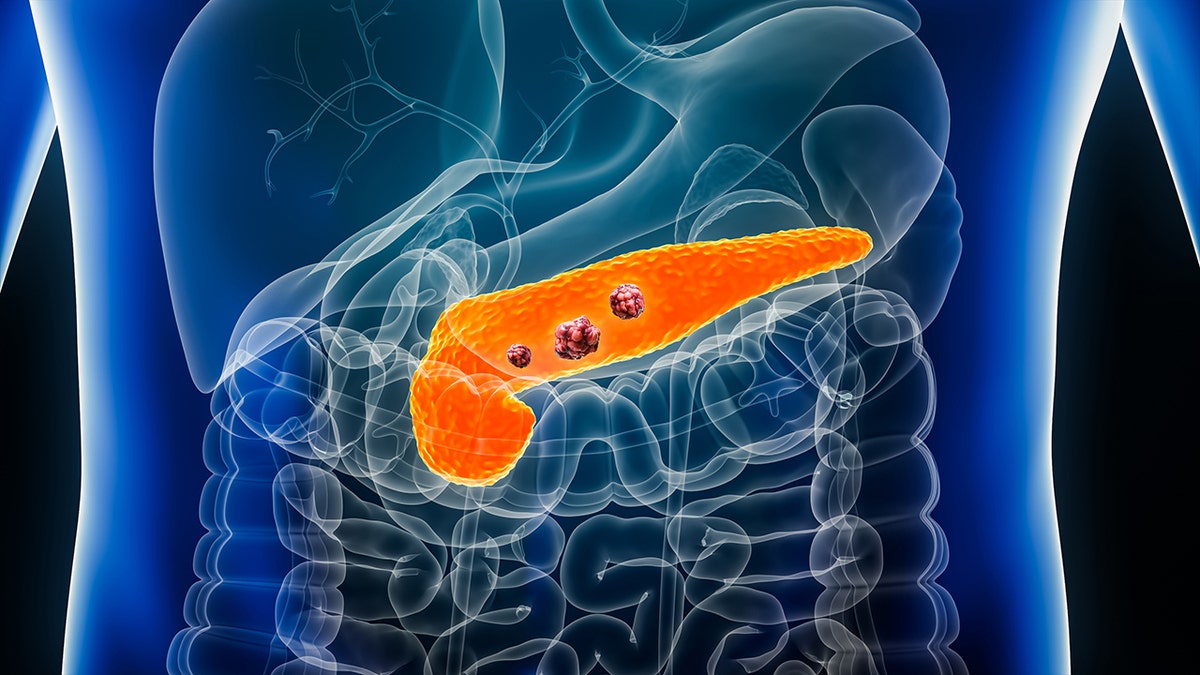
The ACS report also warns about “lagging progress” against pancreatic cancer, the third-leading cause of cancer death in the U.S. (iStock)
Rates of diagnoses and deaths from the disease type are on the rise.
“Pancreatic is an incredibly deadly form of cancer,” Carpten said.
One of the main issues with pancreatic cancer, he said, is that it sometimes can grow in an individual for up to 10 years before it’s detected.
“If we can identify those cancers when they’re at at a curable stage, we can improve outcomes.”
One of the best opportunities for beating pancreatic cancer is early detection, Carpten said.
“By the time those cancers have advanced, they’ve spread to the liver or other organs, and they’re almost impossible to cure at that stage,” he said.
“If we can identify those cancers when they’re at a curable stage, we can improve outcomes.”
‘It takes a village’
Making progress in fighting cancer “takes a village,” Carpten told Fox News Digital.
“It will require partnerships between the community, the health care system, cancer researchers, government, industry — we all have to work together if we want to continue to see a decrease and an ultimate increase in cures,” he said.
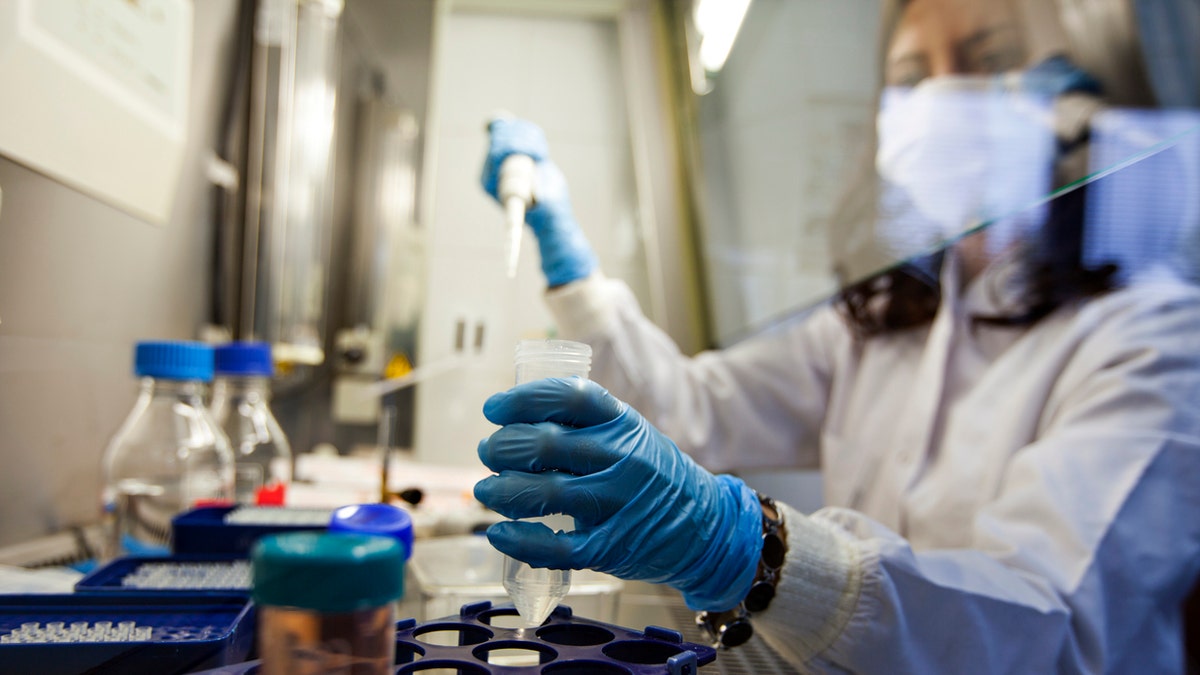
“We all have to work together if we want to continue to see a decrease and an ultimate increase in cures,” a cancer researcher said. (iStock)
Dr. Wayne A. I. Frederick, interim chief executive officer of the American Cancer Society and the American Cancer Society Cancer Action Network (ACS CAN), stated that the report highlights the need to “increase investment in both cancer treatment and care, including equitable screening programs.”
CLICK HERE TO SIGN UP FOR OUR HEALTH NEWSLETTER
“Screening programs are a critical component of early detection, and expanding access to these services will save countless lives,” he said in the release.
For more Health articles, visit www.foxnews.com/health
“We also must address these shifts in cancer incidence, mainly among women. A concerted effort between health care providers, policymakers and communities needs to be prioritized to assess where and why mortality rates are rising.”
Fox News Digital reached out to the ACS for further comment.
-
/cdn.vox-cdn.com/uploads/chorus_asset/file/25822586/STK169_ZUCKERBERG_MAGA_STKS491_CVIRGINIA_A.jpg)
/cdn.vox-cdn.com/uploads/chorus_asset/file/25822586/STK169_ZUCKERBERG_MAGA_STKS491_CVIRGINIA_A.jpg) Technology1 week ago
Technology1 week agoMeta is highlighting a splintering global approach to online speech
-

 Science5 days ago
Science5 days agoMetro will offer free rides in L.A. through Sunday due to fires
-
/cdn.vox-cdn.com/uploads/chorus_asset/file/25821992/videoframe_720397.png)
/cdn.vox-cdn.com/uploads/chorus_asset/file/25821992/videoframe_720397.png) Technology1 week ago
Technology1 week agoLas Vegas police release ChatGPT logs from the suspect in the Cybertruck explosion
-

 Movie Reviews1 week ago
Movie Reviews1 week ago‘How to Make Millions Before Grandma Dies’ Review: Thai Oscar Entry Is a Disarmingly Sentimental Tear-Jerker
-

 Health1 week ago
Health1 week agoMichael J. Fox honored with Presidential Medal of Freedom for Parkinson’s research efforts
-

 Movie Reviews1 week ago
Movie Reviews1 week agoMovie Review: Millennials try to buy-in or opt-out of the “American Meltdown”
-

 News1 week ago
News1 week agoPhotos: Pacific Palisades Wildfire Engulfs Homes in an L.A. Neighborhood
-

 Business1 week ago
Business1 week agoMeta Drops Rules Protecting LGBTQ Community as Part of Content Moderation Overhaul


/cdn.vox-cdn.com/uploads/chorus_asset/file/25626687/DSC08433.jpg)










